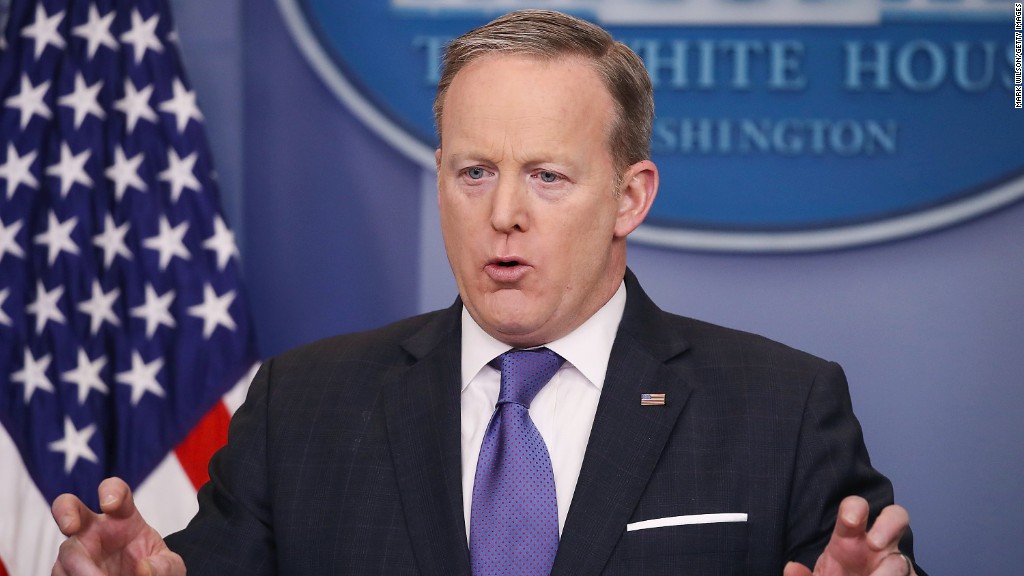
The White House press secretary has always been a spin artist.
Spinning is not lying, Clinton press secretary Dee Dee Myers once said, but rather "marshaling the facts in service of an argument." As President Reagan's longtime press secretary Larry Speakes put it, "spinning aims to minimize the damage by surrounding bad facts with context and good facts."
But spinning has its limits. When facts are replaced with falsehoods, former press secretaries have argued, the person at the podium loses his or her credibility. The late Tony Snow, who served under President George W. Bush, once said, "If it got to the point where I thought it would cost me my credibility, I would have no choice but to walk away."
Sean Spicer, the 30th White House press secretary, has lost his credibility.
This week, White House reporters and journalists who had previously defended Spicer's credibility in interviews with CNN said Spicer had sacrificed that credibility by insinuating that former President Obama had used British intelligence to spy on Trump, and by stating that Trump campaign chairman Paul Manafort had a "very limited role" in Trump's campaign.
"He's venturing into Baghdad Bob territory," one White House reporter said, referring to the Saddam Hussein spokesperson known for his vociferous denials of what to everyone else was reality.
These reporters join a chorus of critics, including a few former White House press secretaries, who have previously told CNN that Spicer sacrificed his credibility at his first briefing, when he made the demonstrably false claim that Trump's inauguration audience was "the largest audience to witness an inauguration" both "in person and around the globe." Spicer later apologized, saying he had been given bad information.
Last week, Spicer again turned heads when he quoted allegations by Fox News legal analyst Andrew Napolitano to insinuate, without any evidence, that President Obama had used UK intelligence agency GCHQ to spy on Trump. Even after the British government rebutted the allegation, Spicer refused to apologize. "I don't think we regret anything," he said. "We were just passing on news reports."
Neither the inauguration claim nor the spying claim inspires a great deal of faith or trust in Spicer or the administration. How much can you trust a spokesperson who doesn't have his facts straight, or a White House that outsources its intelligence to dubious reporting from a biased source, and jeopardizes a key alliance in the process?
But on Monday, Spicer shred whatever credibility he may have had left with his remark about Manafort.
When Manafort took over Trump's campaign last June, Spicer was unequivocal about his role: "Paul's in charge," Spicer, then the Republican National Committee's communications director, told Reuters. Indeed, Manafort had already taken control of the campaign -- including its budget, hiring decisions and media strategy -- two months earlier. But now Manafort was officially "in charge," and would be until mid-August.
On Monday, in an effort to distance Trump from the man now facing questions over links to pro-Russian Ukrainians, Spicer said Manafort had a "very limited role" in the campaign "for a very limited amount of time."
Reminded by ABC News correspondent Jonathan Karl that Manafort had served as chairman of the campaign, Spicer told him to stop interrupting. "It's not your press briefing," he said.
Spicer's claim was not spin. It was a falsehood. And Spicer knew it was a falsehood when he said it, because he had previously acknowledged that Manafort was "in charge" of Trump's campaign.
"I probably should've focused more on the time he was there than the role he played," Spicer told CNN Tuesday.
That acknowledgement may have come too late for the reporters in the briefing room.


